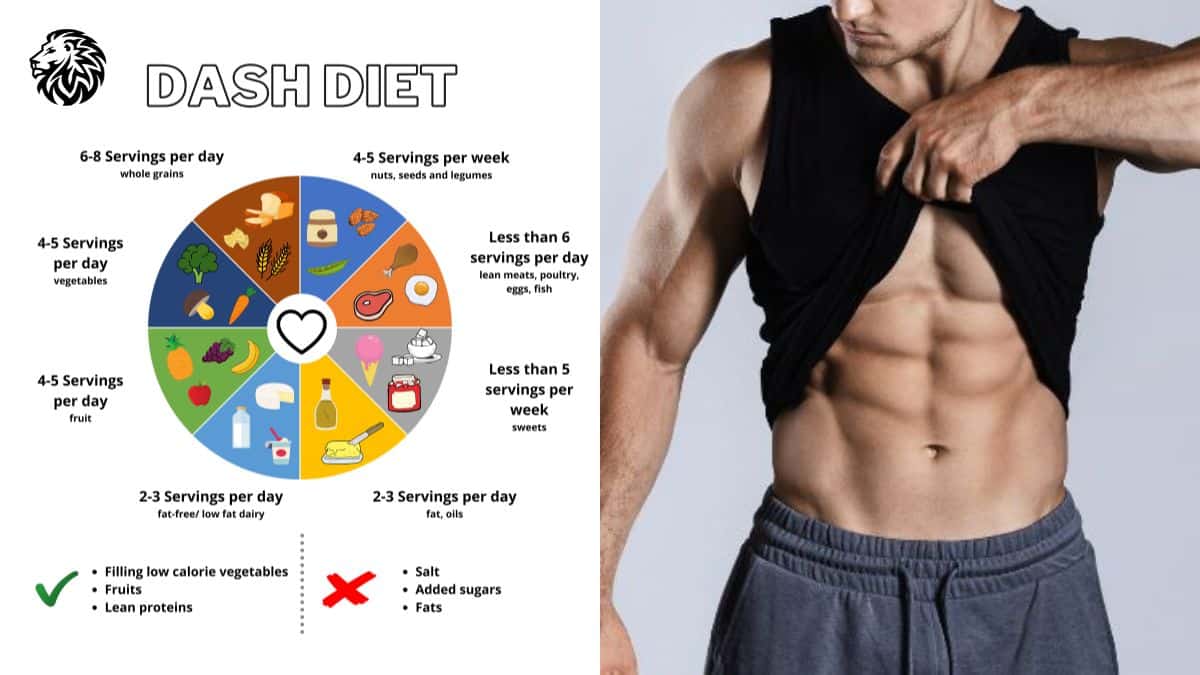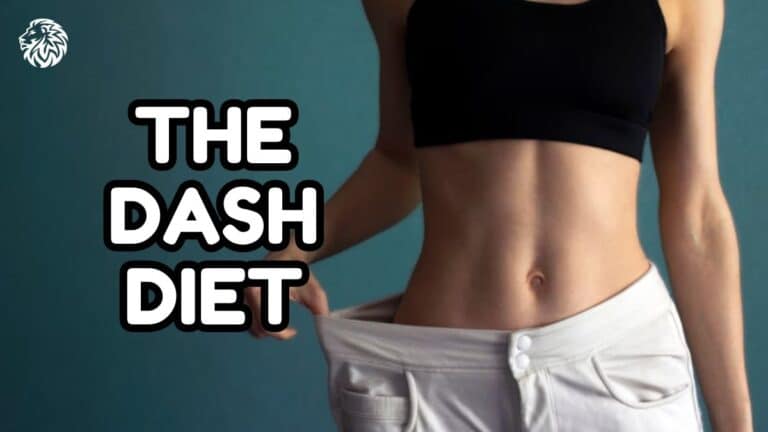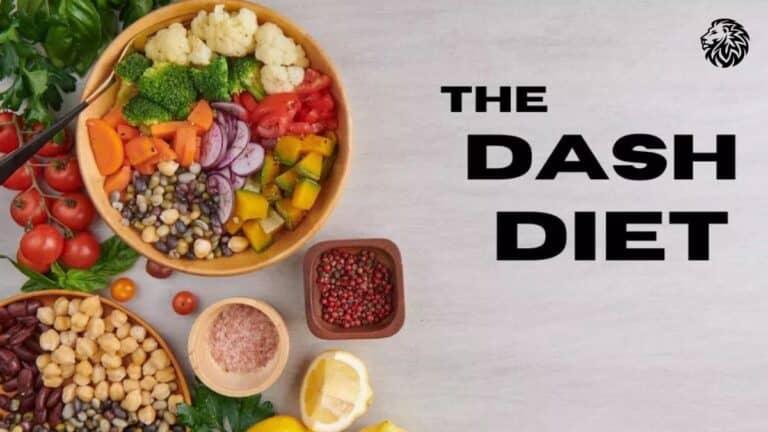The DASH diet, short for Dietary Approaches to Stop Hypertension, has been widely promoted for its ability to reduce blood pressure and improve overall heart health. But just how effective is this diet in achieving those goals? Let’s dive into what the DASH diet involves, its benefits, and whether it truly lives up to the hype.
What Is the DASH Diet?
The DASH diet was originally designed to combat high blood pressure (hypertension). It emphasizes eating a variety of nutrient-rich foods such as fruits, vegetables, whole grains, lean proteins, and low-fat dairy. It also encourages the reduction of sodium intake and the elimination of highly processed foods that are often packed with salt, unhealthy fats, and sugar.
The key principles of the DASH diet include:
- High intake of fruits and vegetables: These foods are rich in potassium, magnesium, and fiber, which help lower blood pressure.
- Emphasis on whole grains: Whole grains, such as oats, brown rice, and quinoa, are essential sources of fiber and nutrients that promote heart health.
- Lean proteins: Sources like chicken, turkey, fish, and legumes are preferred over fatty cuts of red meat.
- Low-fat dairy: These products provide calcium and protein without the excess fat.
- Reduced sodium: One of the primary focuses of the DASH diet is limiting salt intake, which can help manage blood pressure levels.
- Healthy fats: Unsaturated fats from nuts, seeds, and oils like olive oil are encouraged over saturated and trans fats.
DASH Diet and Blood Pressure Reduction
The main claim to fame for the DASH diet is its effectiveness in lowering blood pressure. Many studies have shown that following this diet can result in significant reductions in both systolic and diastolic blood pressure.
- Lowering systolic blood pressure: Research indicates that people on the DASH diet can experience a reduction of 8-14 mm Hg in their systolic blood pressure (the top number in a blood pressure reading). This effect is particularly strong for individuals with existing high blood pressure.
- Reducing diastolic blood pressure: Along with systolic improvements, diastolic blood pressure (the bottom number) also tends to decrease by an average of 3-6 mm Hg. This dual effect makes the DASH diet a reliable choice for controlling hypertension.
The diet’s emphasis on potassium, calcium, and magnesium plays a significant role in these outcomes. These minerals help regulate fluid balance, reduce the strain on blood vessels, and ease tension in the walls of arteries.
Impact on Heart Health
High blood pressure is a major risk factor for heart disease and stroke. By effectively lowering blood pressure, the DASH diet also helps reduce the risk of developing heart-related problems. In fact, studies have found that people who adhere to the DASH diet experience a lower incidence of cardiovascular disease.
Cholesterol levels also tend to improve with this eating pattern. The diet encourages the consumption of healthy fats and fiber, both of which are known to improve cholesterol levels by increasing “good” HDL cholesterol and reducing “bad” LDL cholesterol. As a result, it can help prevent the buildup of plaque in arteries, reducing the risk of heart attacks and strokes.
Weight Management and the DASH Diet
Although the DASH diet was not specifically created for weight loss, many people find that they shed excess pounds while following it. This happens because the diet focuses on nutrient-dense, low-calorie foods that keep you feeling full and satisfied without excessive calorie intake.
- Calorie control: Since the DASH diet promotes whole foods, it naturally reduces the consumption of processed foods and added sugars. These changes can lead to fewer empty calories in your diet, helping you lose weight gradually.
- Increased fiber intake: The diet’s focus on fruits, vegetables, and whole grains means that fiber intake increases significantly. Fiber not only supports digestion but also helps keep you full, reducing the likelihood of overeating.
- Healthy habits: Over time, the DASH diet encourages the development of sustainable, healthy eating habits. As people learn to choose whole, minimally processed foods, they often find it easier to maintain a healthy weight long-term.
While weight loss may not be the primary goal of the DASH diet, it often becomes a positive side effect for those looking to manage their weight.
Managing Diabetes and Insulin Sensitivity
For individuals with type 2 diabetes or prediabetes, the DASH diet can offer significant benefits. By emphasizing whole grains, lean proteins, and healthy fats, the diet helps regulate blood sugar levels. Additionally, reducing processed foods and sugary snacks helps prevent insulin spikes and crashes.
A study published in the journal Diabetes Care found that individuals with type 2 diabetes who followed the DASH diet experienced improved insulin sensitivity. This improvement means that the body becomes more efficient at using insulin to process sugar, helping to prevent dangerous blood sugar fluctuations.
Moreover, the high fiber content of the DASH diet aids in slowing the absorption of sugar into the bloodstream, further stabilizing blood glucose levels.
Effectiveness for Long-Term Health
One of the best aspects of the DASH diet is its sustainability. Unlike many trendy diets that come and go, DASH is based on long-established principles of healthy eating. Its focus on whole foods and balanced nutrition makes it a viable long-term solution for maintaining good health.
- Sustainable lifestyle changes: The DASH diet doesn’t require drastic calorie restrictions or cutting out entire food groups, making it more practical for everyday life. Many people find it easier to stick with than more restrictive diets.
- Versatility: While the DASH diet focuses on reducing sodium and promoting nutrient-rich foods, it allows for flexibility in terms of personal preferences. For example, vegetarians, vegans, or people with food allergies can easily adapt the plan to meet their needs.
- Ongoing research: The DASH diet continues to be the subject of medical studies, and results consistently support its effectiveness in promoting long-term health, including reducing the risk of chronic diseases such as heart disease, stroke, diabetes, and certain types of cancer.
Potential Drawbacks
While the DASH diet is highly effective, it’s not without its challenges. Some individuals may find it difficult to reduce their sodium intake, particularly if they are accustomed to eating a lot of processed or restaurant foods. Cutting back on salt can require significant changes in cooking habits and meal preparation.
Additionally, the diet’s reliance on fresh fruits, vegetables, whole grains, and lean proteins may increase grocery costs for some individuals. However, many people find that the health benefits far outweigh any financial costs associated with following the diet.
Is the DASH Diet Right for You?
The DASH diet is a flexible, evidence-based approach to improving your health, particularly if you’re looking to lower blood pressure or reduce your risk of heart disease. While it may require some adjustments to your current eating habits, the benefits are well-documented and include improved heart health, better weight management, and enhanced insulin sensitivity.
If you’re dealing with high blood pressure or simply looking for a healthy, balanced eating plan, the DASH diet is definitely worth considering. It’s been proven effective for thousands of people and continues to be a go-to recommendation from healthcare professionals worldwide.
So, how effective is the DASH diet? The evidence is clear: it’s a practical, sustainable, and science-backed option for improving overall health, especially when it comes to managing blood pressure and reducing the risk of chronic diseases. If you’re ready to embrace a healthier lifestyle, the DASH diet is a great place to start.
References
- National Heart, Lung, and Blood Institute. (n.d.). DASH research: The DASH diet research studies. https://www.nhlbi.nih.gov/education/dash/research
- Harvard T.H. Chan School of Public Health. (n.d.). DASH diet review. The Nutrition Source. https://nutritionsource.hsph.harvard.edu/healthy-weight/diet-reviews/dash-diet/
- Siervo, M., Lara, J., Chowdhury, S., Ashor, A., Oggioni, C., & Mathers, J. C. (2023). Effects of the DASH diet on cardiovascular risk factors: A systematic review and meta-analysis. Journal of Nutrition and Metabolism, 2023, 10551663. https://www.ncbi.nlm.nih.gov/pmc/articles/PMC10551663/
- Pennington Biomedical Research Center. (n.d.). DASH diet: What you need to know. Pennington Nutrition Series. https://www.pbrc.edu/training-and-education/community-health-resources/pennington-nutrition-series/dash-diet-what-you-need-to-know.aspx







